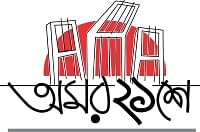Language: stepping back

It makes sense, before one goes into an examination of the controversy generated by governor general Mohammad Ali Jinnah on the language question during his visit to Dhaka in March 1948, to step back a little and observe the Bangla language issue as it developed before and after the partition of India. It has to be made clear that the demand for Bangla as a language of the state was not a sudden occurrence but a well-thought out proposal from a number of Bangalee individuals in the mid to late 1940s.
That language would be an issue in Pakistan was first hinted at when Chaudhry Khaliquzzaman, a prominent Muslim League figure in the UP who later migrated to Pakistan, told a conference in Hyderabad in May 1947 that Urdu ought to be the language of the soon to be Muslim state. Two months later, in July 1947, Dr Ziauddin Ahmed, vice chancellor of Aligarh University, echoed Khaliquzzaman's views.
The Bangalee Abdul Haq, as AMA Muhith informs us in his book State Language Movement in East Bengal (now Bangladesh) 1947-1956, initiated the debate on the place of Bangla in Pakistan. "Bangla Bhasha Bishoyok Prostab", the first article in which Haq argued for Bangla as Pakistan's state language, appeared in two instalments in the Calcutta daily Ittehad on June 22 and 29, 1947. On July 29, 1947 Dr Muhammad Shahidullah rubbished Dr Ziauddin Ahmed's advocacy of Urdu in his article, "Pakistaner Bhasha Shomoshya", in the daily Azad.
It may be noted that in 1946 Abul Hashim, a prominent Muslim League politician in Bengal, had proposed in his party's election manifesto that Bangla be the state language of Bengal. A decisive step in the advocacy of Bangla was taken by Prof Abul Kashem, under whose leadership the Tamaddun Majlis was formed on September 1, 1947. Through his efforts a booklet, "Rashtrabhasha Bangla Na Urdu?", containing articles by Quazi Motahar Hossain, Abul Mansur Ahmed and others, was published on September 15. Understandably, all the articles argued vigorously that the status of Bangla as the official language of East Bengal as also the state language of Pakistan should be ensured.
In November 1947, a memorandum demanding that Bangla be adopted as the state language of East Bengal was signed by a number of Bangalee luminaries, among whom were Moulana Akram Khan, Prof Abul Kashem, Moulana Abdullahel Baqui, Abul Kalam Shamsuddin, Abdul Karim Shahityabisharad, Abbasuddin, Zainul Abedin, Principal Ibrahim Khan, Prof Mansuruddin and Abul Mansur Ahmed. The memorandum was submitted to Chief Minister Khwaja Nazimuddin.
Meanwhile, at an education conference convened in the country's capital Karachi in the same month, Pakistan's education minister Fazlur Rahman, a Bangalee, suggested that Urdu be the state language of Pakistan. Predictably, he ran into a hailstorm of criticism over his remarks.
As 1947 gave way to 1948, Pakistan's constituent assembly, having met in inaugural session on August 11, 1947 prepared to convene in Karachi on February 23, 1948.

 For all latest news, follow The Daily Star's Google News channel.
For all latest news, follow The Daily Star's Google News channel. 



Comments